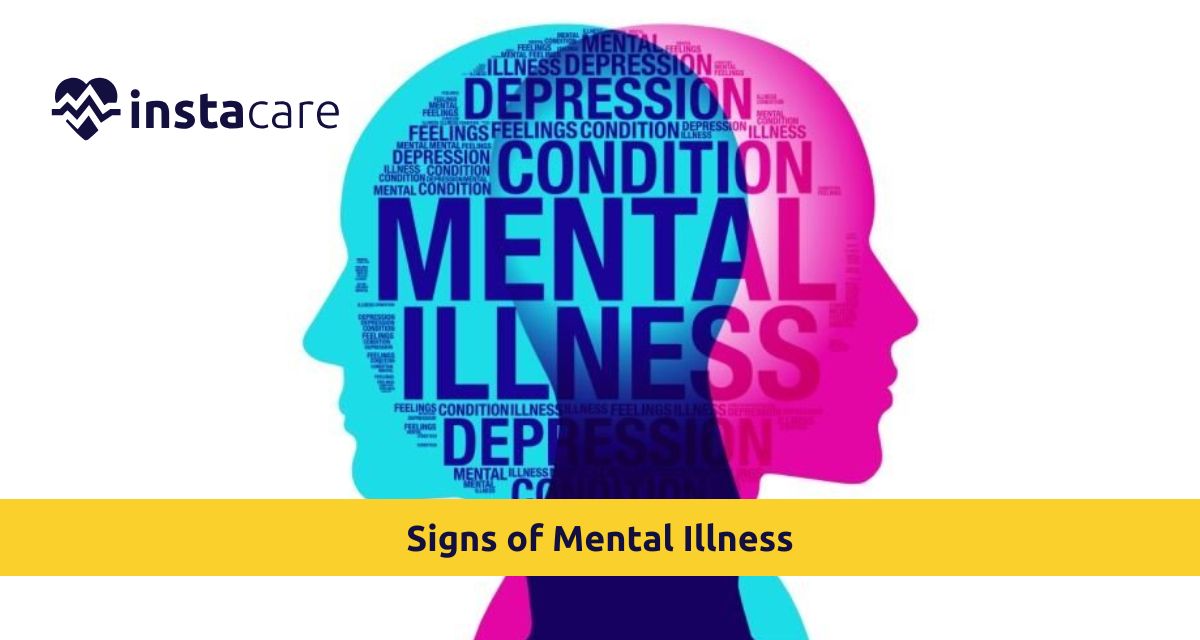Mental illness is a pretty complicated issue, mainly
misconstrued and affects millions across each continent around the world. Now,
anxiety and depression are not the only manifestations of it; other forms
include schizophrenia and even more serious forms of bipolar disorder.
Understanding the symptoms will take quite a long way in terms of how early
intervention, support, and treatment can be best administered. In this blog
post we will be talking about the symptoms of mental illness, what do you do to
find out if you have it or not, and what to do with the person who you think
may be suffering.
Understanding what is Mental Illness?
It falls under the category of a wide range of disorders
wherein the disturbance of the mood, thinking, or behavior of the individual is
considered. There are different kinds of disorders and such may even determine
how they interact with others, cause stress, and make other decisions in life.
Mental illness is not a failure on the part of a person; it is a real condition
that often necessitates professional intervention.
Common Types of Mental Illness
It is helpful to describe briefly some common categories of mental health disorders before describing symptoms of mental illness:
- Depressive Disorders
- Anxiety Disorders
- Bipolar Disorder
- Schizophrenia
- Personality Disorders
Knowing these conditions gives meaning to the warning signs
and symptoms that may mean a mental health condition.
Warning Signs of Mental Illness
The symptoms of various disorders can be very wide. However,
some warning signs can be identified. Some warning signs mean the difference in
ensuring that such illness is treated at an early stage.
1. Change in Mood
A mental illness mainly depicts a change in mood. One may
experience it in different ways such as;
Mood Change
- Persistent Sadness: One can feel intensely sad and hopeless,
or cry for a long period. It's not that it is passing; rather something that
develops into one's state and hampers daily activities.
- Irritability: S/he cannot seem to control their emotions
when irritated by petty issues can be a marker of some form of underlying
emotional problem. Sweet-natured and never read to pick up an argument or an
irritable.
- Emotional Numbness: Not reacting emotionally; feeling numb
and emotionless is frightening. People may report that they are feeling
"flat" or that they are just watching their lives go by like
in-through.
2. Patterns of Different Thinking
Other vital signs of mental illness are thought processing:
- Disorientation: A condition whereby a person cannot
concentrate, deliberate, or follow through can be considered a symptom of
cognitive impairment associated with mental illness.
- Paranoid: A mindset of extreme or illogical fear that others
will or are planning to harm, or even suspect you might cause severe shunning.
- Delusions: This is the holding of weird beliefs in things
that are not true or have any basis in reality. They could also feature in more
serious disorders like schizophrenia.
3. Behavioral Changes
Behavioral changes are also indicators of possible mental
health problems:
- Withdrawal: Males mostly avoid social relationships, a
social life, and all friends and family with the change in interest in things
they like.
- Neglect of Responsibilities: Failure to carry out duties for
work, school, or home may be an indication of the above mental disorder.
- Destructive Behaviours: It may be a means to attract
attention, acting out self-destructive or recklessly dangerous habits such as
substance abuse or dangerous driving.
4. Changes in Sleep and Appetite
Most psychological disorders have somatic features. It will
also present in patterns of sleeping:
- There is insomnia, which is failure to sleep, and
hypersomnia, that is excess sleeping. Sometimes they will end up sleeping less
because they cannot sleep; other times, they may end up sleeping too much as a
means of avoiding society.
- Appetite Changes: Loss of appetite and gain in body weight
can be another cause for unhealthy shifting as a result of changed eating
habits. A patient may lose the appetite to eat and tend to fall into emotional
eating habits, which contributes to unhealthy shifting of body weight.
5. Physical Symptoms
Mental health could also find ways of expression through the
body, which often get overlooked at times:
- Chronic Fatigue: Not being able to feel energetic and
interested may be considered depression and anxiety
- Unexplained Aches and Pains: Headache, gastric disorders, or
other pains without being medically diagnosed may be silent mental health
problems.
6. Impaired Functioning
Reduced functioning in an individual is generally marked
with a significant component of mental disorder
- Decreased productivity: Not meeting tasks/deadlines in the
workplace or college/ university.
- Lack of Energy to Fulfill Routine Affairs. A patient lacks
the energy and interest to do even simple things like keep oneself clean or
keep the house and premises clean.
Elimination of Stigma Related to Mental Illness
One of the biggest barriers to seeking help among those who
suffer from mental illness is the stigmatization that surrounds it. A couple of
people fear being labelled or discriminated against in the event of opening
their mouths regarding their condition. An atmosphere of understanding,
acceptance, and beneficence surrounding mental health issues is very crucially
required.
Education as the Means of Reducing Stigma
Education can eliminate several myths and myths associated
with mental health conditions.
- Open discussions in schools, workplaces, and communities may
end up making the topic of mental illness not so taboo.
- Safe Environment: This finally ends up becoming a place
where people do indeed experience a non-judgmental safety that reduces feelings
of shame and isolation.
Conclusion
Getting a good understanding of the signs of mental illness
begins with the first step of finding help to support. This entails that the
understanding of different symptoms and their ramifications can help come up
with a culture of awareness and empathy that encourages all people to seek
treatment without fear of stigma. General mental health is part of total
wellness and quite often produces better results if sought early. If help is
needed then there is always support available, and one needn't do this all
alone. Be happy, and enjoy the journey, but towards good mental health, take
proactive steps in nurturing your mental health.
Please book an appointment with the Best Psychiatrist in Lahore, Karachi, Islamabad, and all major cities of Pakistan through InstaCare, or call our helpline at 03171777509 to find a verified doctor for your disease.








